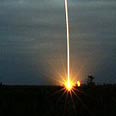
US concerned by Chinese satellite-killer test
White House says US, Australia and Canada have voiced concerns to China over first known satellite-killing test in space in more than 20 years. 'What we don't want to see is some sort of spread of an arms race into outer space,' Australian foreign minister tells reporters
The United States, Australia and Canada have voiced concerns to China over the first known satellite-killing test in space in more than 20 years, the White House said on Thursday.
"The US believes China's development and testing of such weapons is inconsistent with the spirit of cooperation that both countries aspire to in the civil space area," National Security Council spokesman Gordon Johndroe said. "We and other countries have expressed our concern regarding this action to the Chinese."
Using a ground-based medium-range ballistic missile, the test knocked out an aging Chinese weather satellite about 537 miles above the Earth on January 11 through "kinetic impact," or by slamming into it, Johndroe said.
Canada and Australia had joined in voicing concern, he said. Britain, South Korea and Japan were expected to follow suit, an administration official added.
On a visit to New York, Australian Foreign Minister Alexander Downer said Australia raised concerns with the Chinese some days ago.
"So far, the answer from the foreign affairs people in China, including the ambassador in Canberra, is that they are not aware of the incident and they are getting back to us," Downer told reporters.
"What we don't want to see is some sort of spread, if you like, of an arms race into outer space. The danger there is that you get into a situation where other countries, including the US. I suppose, would have to start to look for ways to protect satellites in space," he said.
"The other concern is that the debris from the destroyed satellite could hit other satellites and damage (them)," Downer said.
The last US anti-satellite test took place on September 13, 1985. Washington then halted such Cold War-era testing, concerned by debris that could harm civilian and military satellite operations on which the West increasingly relies for everything from pinpoint navigation to Internet access to automated teller machines.
According to David Wright of the Cambridge, Massachusetts-based Union of Concerned Scientists, the satellite pulverized by China could have broken into nearly 40,000 fragments from 1 cm to 10 cm or up to 4 inches, roughly half of which would stay in orbit for more than a decade.
On the day of the test, a US defense official said the United States was unable to communicate with an experimental spy satellite launched last year by the Pentagon's National Reconnaissance Office. There was no immediate indication that that was a result of the Chinese test.
Satellite-killing capability
Aviation Week & Space Technology, the first to report the test, cited space sources as saying a Chinese Feng Yun 1C polar orbit weather satellite, launched in 1999, was destroyed by an anti-satellite system launched from or near China's Xichang Space Center in Sichuan Province.
The capability demonstrated by China was no surprise to the Bush administration, which revised US national space policy in October to assert a right to deny space access to anyone hostile to US interests.
The United States has been researching satellite-killers of its own, experimenting with lasers on the ground that could disable, disrupt and destroy spacecraft.
Marco Caceres, a space expert at the Teal Group, an aerospace consulting firm in Fairfax, Virginia, said China's test could bolster a host of costly military space programs, almost all of which are over budget and behind schedule.
"They are going to use this for as much as they can," he said, referring to Pentagon officials. Major corporate beneficiaries could be Lockheed Martin Corp., Boeing Co. and Northrop Grumman Corp., which build US communications, surveillance and early warning satellites, Caceres said.










